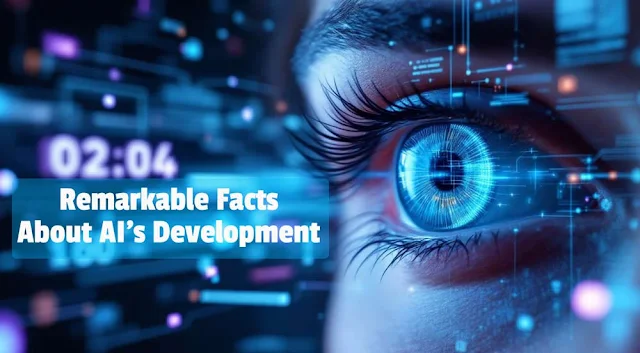
In 2022, a groundbreaking AI model created stunning artwork in minutes, something that took skilled artists days to accomplish. This moment was just one example of how artificial intelligence has started to shape our world. From daily tasks to complex operations, AI is becoming a part of our lives in ways we never imagined. This article dives into 10 remarkable facts about AI's journey, showcasing its rapid growth and transformative role across various fields.
AI's Astonishing Rise: A Historical Perspective
Early Days of AI
Artificial intelligence has roots that trace back to the 1950s. Pioneers like Alan Turing and John McCarthy laid the groundwork. In 1956, the Dartmouth Conference marked the birth of AI as a formal field. By 1959, the first AI program, called "General Problem Solver," was developed, solving puzzles and problems.
The Deep Learning Revolution
The arrival of deep learning in the 2010s was a game-changer. This method mimicked human brain processes, allowing machines to learn from data. The AI market grew from $1.5 billion in 2016 to nearly $62 billion by 2020, showing its rapid adoption.
From Theory to Reality
Moving from theory to practical use has been vital. AI is now in smartphones, smart homes, and even cars, enhancing daily tasks and experiences.
AI in Healthcare: Revolutionizing Diagnosis and Treatment
AI-powered Diagnostics
AI has transformed healthcare, notably in diagnostics. For instance, an AI system developed by Google's DeepMind can detect eye diseases with 94% accuracy, surpassing human doctors. Research shows that AI tools improve diagnostic accuracy by 15-20%.
Personalized Medicine
AI plays a key role in tailoring treatments specific to patients. It analyzes genetic data to suggest treatments best suited for individual needs. Companies like Tempus are using AI to personalize cancer treatment plans, improving patient outcomes significantly.
Drug Discovery and Development
Developing new drugs is expensive and time-consuming. AI speeds up this process, cutting costs by about 30%. For instance, Atomwise uses AI to predict how different compounds interact with diseases, leading to faster discoveries.
AI's Impact on Industries: Transforming Businesses and Economies
Automation and Efficiency
In manufacturing, AI robots streamline operations, leading to cost reduction. For example, companies like Amazon use AI for inventory management, boosting efficiency by 30%.
Enhanced Customer Experiences
AI enhances customer service by personalizing experiences. Chatbots like those used by Sephora provide instant assistance, improving customer satisfaction rates by 25%.
New Job Creation and Economic Growth
While AI may displace some jobs, it also creates new ones. The World Economic Forum estimates AI will create 97 million new jobs by 2025. Roles in data analysis and machine learning are in high demand, contributing to economic growth.
The Ethical Considerations of AI Development
Bias and Fairness
Ensuring fairness in AI remains challenging. Algorithms may inherit biases from data, leading to unfair outcomes. For example, facial recognition technology has faced criticism for racial bias. Experts stress the need for transparency in AI models.
Privacy and Security
AI raises concerns about data privacy. With extensive data collection, there's a risk of misuse. According to a 2021 survey, 59% of people worry about their personal data being compromised due to AI.
Responsible AI Development
Adopting ethical guidelines for AI is crucial. Initiatives like the Partnership on AI promote responsible development, focusing on fairness, accountability, and transparency.
The Future of AI: Predictions and Possibilities
AI and the Metaverse
AI is set to play a significant role in the metaverse, creating virtual worlds that blend reality and digital experiences. This synergy could revolutionize entertainment, education, and social interaction.
AI and Sustainability
AI offers tools to combat climate change. For instance, AI algorithms optimize energy use in buildings, reducing consumption by up to 30%. Smart farming uses AI to increase crop yields while minimizing waste.
The Singularity Debate
The idea of artificial general intelligence (AGI) continues to spark debate. Some experts believe AGI could occur within decades, while others argue it remains far off. Regardless, this discussion shapes AI's future direction.
Conclusion
The exploration of AI's development reveals remarkable facts that illustrate its transformative power. From revolutionizing healthcare to reshaping industries, the impact is profound.
As AI continues to evolve, staying informed and engaged is essential. Embrace the conversation about AI’s future and consider how it will affect your life and society.
